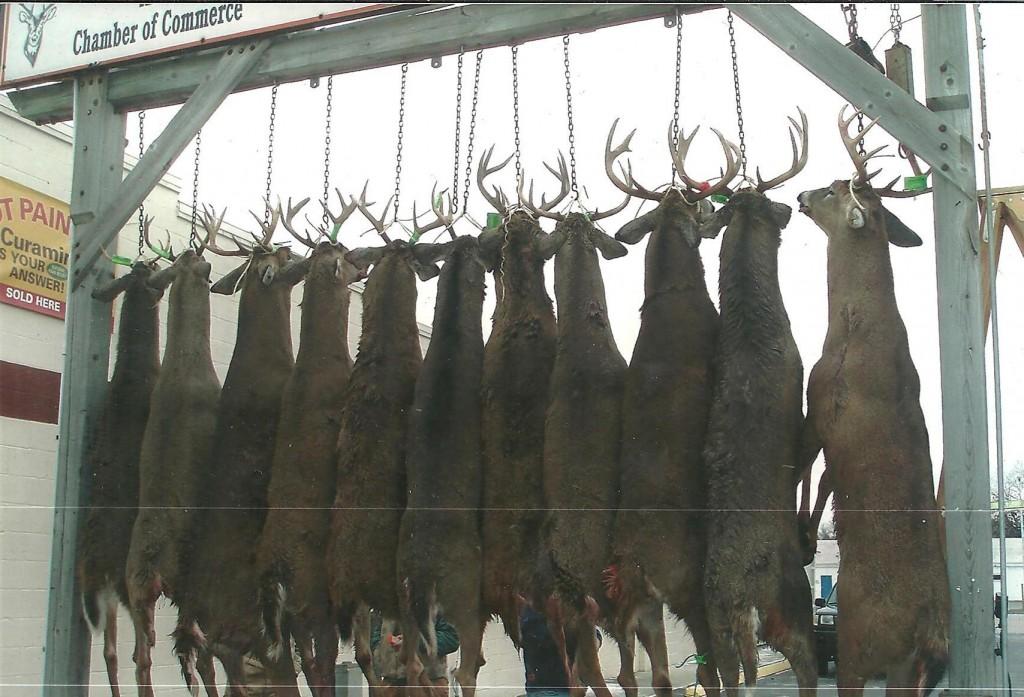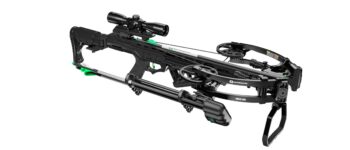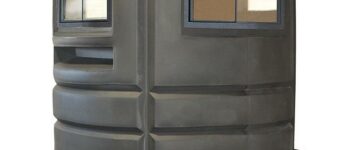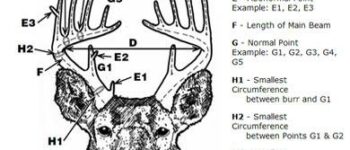Few cartridges have been able to survive for 150 years. Fewer still have been able to maintain some sort of popularity without losing a fan base. Out of all the cartridges that have survived, to say it is the .45-70 is surprising to many folks. Most would think a more popular cartridge would have survived this long and still be a popular choice for sportsmen. It all began when in 1873 the U.S. Government adopted the .45-70 as an official military round for the Armed Forces.

Do We Really Need One-Hole Rifle Accuracy for Deer Hunting?
At that time, the .45-70 fired a .45-caliber, 405-grain projectile over 70 grains of black powder for a muzzle velocity of roughly 1,200 feet per second. The official military designation of the new cartridge was the .45-70-405. Caliber was .458” (11.6mm). The 1873 US Springfield rifle, also known as the “Trap Door,” had to be capable of producing a 4-inch group at 100 yards in order to be considered for military service. The rifle was generally considered as being effective out to about 300 yards, but was also used in volley fire out to 600 yards. Some expert marksmen could extend the range significantly farther. In 1879, a more efficient load was adopted and designated the .45-70-500 (500-grain bullet). Even though the .45-70 was a very effective cartridge when it arrived at its target, soldiers still yearned for repeating rifles, and the single-shot Springfield was starting to lose favor with soldiers. Following the Spanish-American war, the Springfield in .45-70 Gov’t. was replaced with a different cartridge.
You are reading: The .45-70 Gov't: A Legendary Deer Hunting Cartridge
The .45-70 was still quite popular with hunters due to its power for all big game; with consistent, predictable performance, it was a true all-around cartridge. By the 1880s and ’90s, the .45-70 was perhaps the most popular big-game cartridge in the country. When sporting cartridges with high velocity and smokeless powder arrived in the 1890s, the first to rival the popularity of the .45-70 was the .30-30 Winchester. After much research, cartridge designers discovered that a high-velocity, small-caliber projectile could produce large — disproportionate to caliber — wound channels. Channels created by a small .30-caliber bullet could exceed the diameter of those produced by the large, slow-moving, .45-caliber projectiles.
Nevertheless, in the early stages of such developments, small-caliber projectiles had many flaws. On medium game, if the small-bore bullet was made too soft, it could explode on impact and fail to give adequate penetration when needed. Inversely, too dense of a bullet would pencil through game without creating a wide, fast-killing wound. Along with this, few designers had much knowledge of the effectiveness of small bores on large animals.
How to Pick the Best Deer Rifle for Your Type of Hunting
In contrast, the .45-70 was consistent in its manner of killing medium game. Kills may have been slow from time to time, but as long as shot placement was reasonable — bleeding was fast and kills were clean. The .45-70 always created a large wound and always provided deep penetration. On large game, the .30-30 was adopted to some extent, but was never as reliable as the heavyweight .45-70 projectile.
Read More : Top 12 Treestands and Hunting Blinds for 2021 | Deer & Deer Hunting
As states that have traditionally been shotgun-only for deer hunting are beginning to open their seasons to the use of straight wall cartridges, the .45-70 is seeing a resurgence in popularity and use, and understandably so. The .45-70 Gov’t. is arguably the best choice out of all of the straight wall cartridges.
Why are some of these states allowing straight-wall cartridges?
It is really a ballistic issue. Generally speaking, most straight wall cartridges do not carry the same downrange energy or pose the same long-distance threat that necked cartridges carry. For comparison to a popular deer hunting shotgun slug, the Remington High Velocity 3-inch rifled slug carries the following ballistics:

Conversely, the .45-70 Gov’t has the following ballistics:

When it comes to using a straight-wall cartridge, it is comparable in ballistics to a 12-gauge shotgun slug. Whereas a necked cartridge carries a lot more energy and range, but a straight-wall cartridge under most hunting situations will not carry beyond 300 yards. Most of the necked cartridges of similar ballistics can carry twice that distance.

More and more states are allowing straight-wall cartridges to be used during hunting season and manufacturers are taking notice. Traditions Firearms has begun production of the single-shot Outfitter G2 rifle that fits the needs of these states. The Outfitter G2 is now offered in .44 Rem Magnum, .45-70, .450 Bushmaster, .35 Whelen, .243 Winchester and .357 Magnum. The .45-70, .450 Bushmaster and .35 Whelen models feature a muzzlebrake that helps to reduce recoil.
When it comes to hunting with a large-bore, straight-wall cartridge, hunters want a dependable and accurate rifle. Thankfully, Traditions has met that need with the Outfitter G2 in .45-70 Gov’t., to offer one of the finest choices out of all the straight-wall cartridge rifles.
— PAID PARTNER CONTENT. This content is brought to you by a D&DH advertising sponsor.
Source: https://raysthesteaks.com
Category: Hunting









